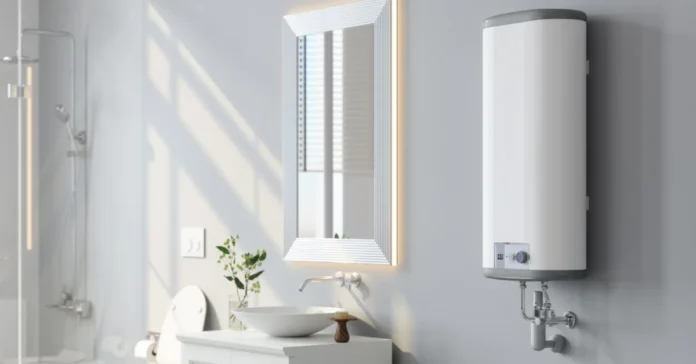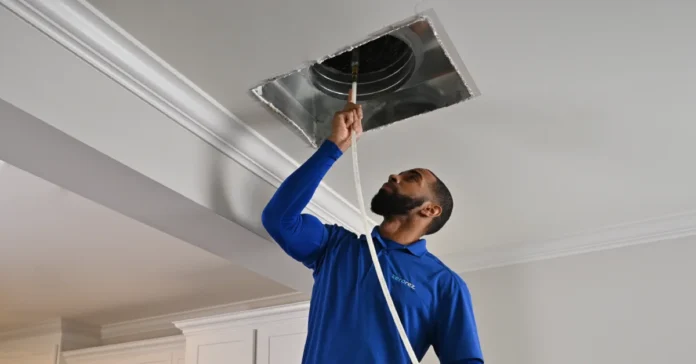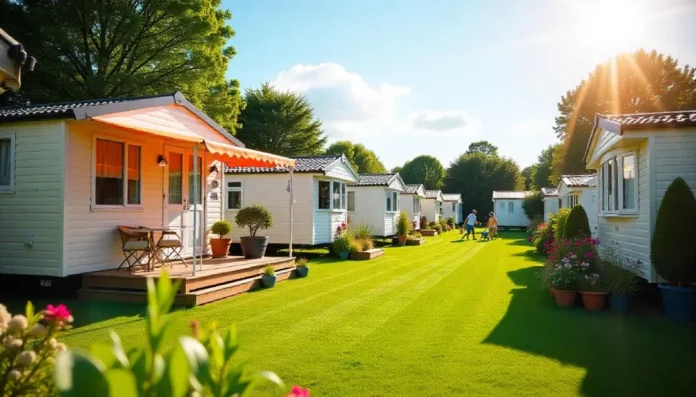When considering ways to improve energy efficiency at home, many homeowners overlook one critical area: their water heater. Traditional water heaters often consume a significant amount of energy, which increases your utility bills and your home’s carbon footprint. Upgrading to a modern water heater can make your home more energy-efficient and reduce energy costs.
If you need expert advice or professional help, consider contacting a reliable company that offers water softener and water heater services in Scottsdale, AZ, to ensure your water heating system operates at maximum efficiency.
This article explores how modern water heaters can revolutionize your home’s energy use and explains how to make the switch smoothly while enjoying the benefits.
Why energy efficiency in water heaters matters
According to the U.S. Department of Energy, water heaters account for roughly 18% of a home’s total energy usage. Inefficient models waste energy and money, making them a prime candidate for upgrades. Modern water heaters feature advanced technologies that enhance water heating efficiency, conserve energy, and ensure households have consistent access to hot water.
Energy-efficient water heaters reduce:
- Monthly utility bills
- CO2 emissions
- Wear and tear on your home’s energy systems
Choosing the right water heater is an investment in your home and the planet’s future.
Types of modern energy-efficient water heaters
Modern water heaters are equipped with built-in features designed to maximize efficiency and convenience. Here are key features that can make a big difference:
Tankless water heaters
Commonly known as on-demand water heaters, these systems heat water only when it’s needed instead of keeping a tank full of preheated water. They are highly energy-efficient because they eliminate the standby heat loss that traditional tank heaters experience.
Benefits:
- Endless hot water supply
- Compact design
- Lower energy consumption over time
Heat pump water heaters
Hybrid water heaters, or heat pump models, utilize electricity to draw heat from the surrounding air or ground and use it to warm the water. These models are incredibly efficient, using up to 60% less energy than traditional water heaters.
Benefits:
- Cost-effective
- Long lifespan
- Reduced energy usage
Solar water heaters
Harnessing the power of the sun, solar water heaters use solar panels to gather energy that heats your water. Although the upfront installation costs may be higher, the long-term energy savings are substantial.
Benefits:
- Environmentally friendly
- Low operational costs
- Excellent for sunny climates
Features of modern water heaters that boost energy efficiency
Modern water heaters come equipped with built-in features designed to maximize efficiency and convenience. Here are key features that can make a big difference:
- Insulation: Newer tank water heaters are equipped with foam insulation that reduces standby heat loss.
- Smart technology: Many modern models feature Wi-Fi-enabled capabilities, allowing you to schedule heating times and remotely monitor energy usage via your smartphone.
- High recovery rates: Advanced water heaters heat water more efficiently, requiring less energy to replenish your hot water supply.
- Safety features: Anti-scale and self-cleaning functions help maintain efficiency over time while reducing maintenance needs.
Tips for selecting and using a modern water heater efficiently
Making the switch to a modern water heater is a great start, but optimizing its functionality is equally important. Here’s how you can maximize energy efficiency:
Choose the right size
Selecting a water heater that’s appropriately sized for your household is crucial. A system that’s too large will waste energy, while one that’s too small won’t meet your needs. Consider factors like the number of occupants in your home and peak water usage times.
Set the right temperature
Most modern water heaters allow you to adjust the water temperature. Setting it to 120°F (49°C) is typically sufficient for everyday use, and it reduces energy consumption while preventing scalding.
Perform routine maintenance
Simple maintenance tasks, such as draining the tank to remove sediment buildup, can keep your water heater running smoothly. If you’re using a tankless model, ensure that filters and heating elements are clean.
Insulate pipes
Insulating your hot water pipes helps retain heat longer, reducing the need for additional energy to keep the water warm. This is especially effective during colder months.
Benefits of upgrading to a modern water heater
Still on the fence about switching to a modern water heater? Here’s a brief overview of the benefits you can expect:
- Cost savings: Lower monthly energy bills thanks to better efficiency.
- Comfort: Consistent hot water supply when you need it.
- Durability: Modern water heaters are built to last, often featuring warranties that cover 10 years or more.
- Eco-friendliness: Using less energy means releasing fewer carbon dioxide emissions into the atmosphere.
Call the experts
Lastly, while installing or upgrading your water heater independently may be tempting, consulting a professional is the best way to ensure both safety and efficiency. Whether you’re replacing an outdated unit or exploring energy-efficient options, professional technicians bring expertise and peace of mind.
Conclusion
Upgrading to a modern water heater is smart for your home, wallet, and environment. With energy-efficient features, advanced technology, and expert guidance, you can enjoy the benefits of hot water while knowing you’re making a positive impact.
Your home deserves the best, so explore your options today to improve its energy efficiency. A modern water heater could upgrade your home to feel more comfortable, economical, and environmentally friendly.



